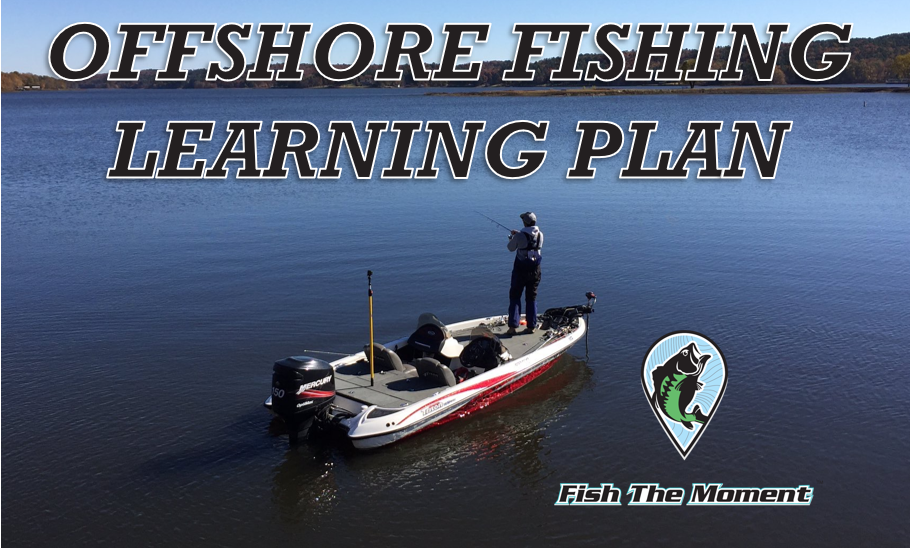5 Simple Steps to Become an Offshore Bass Fisherman | Learning Plan
Author: Jonny Schultz (Fish the Moment)
Offshore fishing is one of the most appealing and challenge techniques for targeting bass. It can take months to gain confidence fishing in the middle of the lake and years to master. As a self-taught offshore bass fisherman, I know how difficult it can be to learn how to fish offshore and build confidence in an area, bait, or technique when you’ve never done it before.
This is one of the main reasons I started Fish the Moment. I want to flatten the learning curve on difficult bass fishing techniques like offshore fishing. Since starting my YouTube channel in 2016, I’ve made dozens of videos about offshore bass fishing. While they are all informative by themselves, they are even more effective when watched in a specific order. Therefore, I have created a learning plan that links the videos together in cohesive fashion.
By following the 5 step learning plan below, I GUARANTEE you will become a better offshore bass fisherman and put more bass in the boat this year.
Learn the basics of bass behavior as it relates to offshore bass fishing
I’ve made several videos on my YouTube Channel about when, where, and why bass position offshore. Here are 4 videos you need to watch before you start fishing offshore that will save you months of failure and frustration:
2. Learn how to read contour/topographical maps
Contour line maps are the key to understanding what’s going under the water in the middle of the lake. Without contour line maps, finding bass offshore is a very time consuming process. Here are some videos on how to interpret a contour line map:
There are several types of contour line mapping softwares on the market, as well as free web apps where you can view the map of your lake for free! Here are some links to those pages:
If you can’t find a contour line map for your lake, you can also use Google Earth Pro to find historical images of your lake when it’s drawn down to give you a better understanding of what’s going on under the water. Here’s a link to a video that explains how to download and use Google Earth Pro:
3. Learn how to read your fish finder
This is the most important step to becoming a good offshore bass fisherman. If you don’t understand how to read a fish finder, you’re not going to be an efficient and effective offshore fisherman. Here’s a link to a playlist with several videos that explain the basics off interpreting a fish finder, as well as more advanced techniques.
Once you understand how to read and interpret your fish finder, watch this video to understand how to apply what you’ve learned on the lake:
4. Learn what baits to throw offshore based on what you see on your fish finder
Once you understand the basics of offshore fishing, you will want to start experimenting with different offshore fishing lures. Here’s a video that breaks down which fishing lures to use based on what you see on your fish finder:
You can also download my FREE guide to offshore bass fishing lures with all of the baits I use, along with brand and color recommendations.
5. Take your offshore fishing to the next level
If you’ve made it this far and are ready to take your offshore fishing to the next level, I highly recommend checking out my Offshore Fishing Playbook. It will give you a framework for how to consistently find and catch offshore bass by helping you establish a structured approach to offshore fishing. You will learn how to adapt to different weather conditions, times of day, and lake conditions and how to maximize your fishing time on the water.
If you’re still struggling to find offshore bass after following steps 1 - 5, I would recommend booking a 1-on-1 virtual fishing lesson with me. During the lesson, we would meet over Google Hangout and I will break down your lake with you live. I will also come prepared with fishing strategies for your area/type of lake, bait recommendations, and frameworks for how to be more efficient on the water.
I hope this article helped speed up your understanding of offshore bass fishing and saves you from making a lot of the mistakes I did when I first started fishing offshore.
Best of the luck on the water,
Jonny

